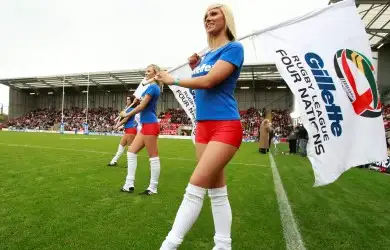Anderson’s international eligibility idea should be a stepping stone to expansion

Exiles coach Daniel Anderson has stressed the need for international player eligibility rules to be flexible.
Anderson suggests players eligible for several nations should be allowed to represent their native countries, should they also be eligible for Australia, New Zealand or England.
Anderson says the problem surrounding player eligibility in international rugby league comes from the strict rules preventing players from switching allegiances in each World Cup cycle.
His idea to create a two tier system is a good one. England, Australia and New Zealand are tier one teams, and selectors can give players with duel eligibility first refusal on these teams.
Should a duel eligible player not be selected to play for one of the ‘big three’ they should be allowed to play for a tier two team (Fiji, Tonga, Lebanon, Italy, Wales etc.)
There should be no crossovers between tier one, and once you have played for a tier two nation there is no crossover between tier two nations. Once you have played for any nation in any calendar year, you cannot represent another nation for the rest of that season. Obviously a player must still have been born in that tier two nation, have a parent or grand parent from that nation or reside there.
That is all very well and good, and increasing the opportunities for players to play international rugby league while this aspect of the game progresses. The domestic game on both side’s of the globe have never been in better health, but a big attraction that will trigger mass expansion is a successful international game.
By increasing the potential talent pool for the tier two nations, this will provide better competition for the big three.
The overall aim is to develop these so-called tier two nations, and by getting them to compete regularly and consistently then interest will rise… for now.
Anderson’s idea is by no means perfect. In an ideal world Francis Meli would play solely for Samoa, Neville Costigan would never have represented Queensland AND Papua New Guinea, and Danny Brough would decide if he is either Scottish or English.
The reality is rather different, and we must encourage the developing nations to select essentially second-hand players who have enough quality to provide these nations with the talent they so badly need.
If we, as a sport, prevent Scotland selecting Dewsbury born Brough, Wales from picking St Helens born Lee Briers, and Ireland giving Australian born Damien Blanch the wingers shirt, we may as well give up on international rugby league all together.
And that would put the game back 20 years!